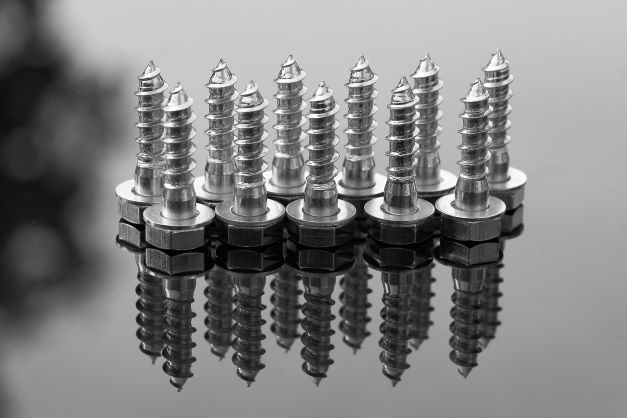Goniometer: The Best Options for Your Garage
Goniometer are car garage tools that provide accurate angle measurements, contributing to the efficiency and quality of the work done.
If you plan on opening a car garage, you should explore what a goniometer is and how to use one, as this tool will bring numerous benefits to your business.
Keep reading this article and find out how it can be useful for your workshop.
What is a Goniometer?
A goniometer is a measuring instrument used to measure angles, and goniometry is applicable in areas such as geometry, physics, engineering, medicine, and mechanics.
It is similar to a ruler or set square with a scale in degrees and a movable arm with a lens or viewfinder to make it easier to read angles accurately.
- Tyre Changing Machine: The Best Options
What is a Goniometer used for?
Goniometers are used to measure and quantify angles accurately in various contexts.
For example, in mechanical engineering, it is used to measure the angles of rotation in machines and components.
How do Goniometers work?
This device is operated by placing the ruler and the arm on the object you want to measure the angles of.
The parts of the goniometer are then fixed in place using screws, after which it is possible to read the angle.
What are the Most Common Types of Goniometer?
The most common types of goniometers are:
-
Simple Goniometer
Simple goniometers are used to measure simple angles up to 180°.
-
Universal Goniometer
Universal goniometers are most often used in the industrial sector, as they allow for more complicated angles to be measured.
-
Digital Goniometer
Digital goniometers are made up of the same parts as mechanical versions, but the measurement taken is then displayed on a screen.
-
Magnetic Goniometer
Magnetic goniometers contain elements that are positioned by magnets to measure angles. These types of goniometers are more accurate because their parts do not move. As such, they are used in the automotive sector to accurately tighten bolts.
-
Goniometer with Torque wrench
Goniometers with torque wrenches are ideal for tightening engine bolts at an angle.

Digital Goniometers versus Analogue Goniometers: What’s the Difference?
The main difference between digital goniometers and analogue goniometers is how they are read and present results.
While analogue goniometers use a graduated scale that is printed or engraved on their surface, digital goniometers display the results on a digital display.
Analogue models have a pointer or movable arm aligned with the scale so that an angle can be read, while digital models have electronic sensors to accurately measure angles.
Finally, the accuracy of the reading given by a mechanical goniometer is dependent on the user’s ability to align the pointer or arm with the graduated scale. In contrast, readings given by digital goniometers will only present slight deviations.
Digital Goniometers Versus Analogue Goniometers: Which is Best for Car Garages?
Both digital and analogue goniometers have their advantages, so your choice will depend on your specific needs and preferences for your workshop.
A digital model may be the best option if accuracy, readability, and additional features are important. However, an analogue model may be suitable if simplicity, robustness, and cost weigh more heavily.
How Important are Goniometers in a Car Garage?
Goniometers are key in precision, alignment, adjustment, and quality control in a car garage.
This appliance helps ensure that components are assembled correctly, parts are properly aligned, and equipment functions as expected, resulting in more efficient and quality work. It is useful, for example, when carrying out a wheel alignment.
Goniometers for Car Garages: Important Characteristics to Consider
When choosing a goniometer to use in a car garage, there are some important features to consider, such as:
- Accuracy;
- Readability;
- Ease of use;
- Additional features such as reversible scales, and magnets, among others;
- Size and portability (the more compact, the easier it is to carry);
- Durability, as the tool may be subject to adverse conditions such as dust, moisture, and impact;
- Versatility, taking into account the services you provide in your garage (for example, a truck repair shop has different needs to a bicycle repair shop).
Which Goniometers are available in the KROFtools catalogue?
You’ll find several models of goniometers in the KROFTools catalogue. Find out what they are in the following point, as well as the characteristics of each one.
1/2″ Flexible Goniometer with Magnet

Ideal for measuring parts without them moving, for results with maximum precision.
Click on the image to find out more about our 1/2″ Flexible Goniometer with Magnet (ref. 4483).
1/2″ Drive Angular Torque Setting Gauge

With a 1/2″ distance to the point of rotation, this device is used to measure small objects.
Click on the image to find out more about our 1/2″ Drive Angular Torque Setting Gauge (ref. 5233).
3/4″ Drive Angular Torque Setting Gauge

With a 3/4″ distance to the point of rotation, this device is used to measure angles up to 360°.
Click on the image to find out more about our 3/4″ Drive Angular Torque Setting Gauge (ref. 5234).
How much does a goniometer cost?
The price of a goniometer varies depending on its functions and brand. Simple models can cost less than €10, but models with specific characteristics can amount to hundreds of euros.
Interested in finding out more about the world of all-things cars? Then follow us on Facebook and keep up with our daily content.
![]()



